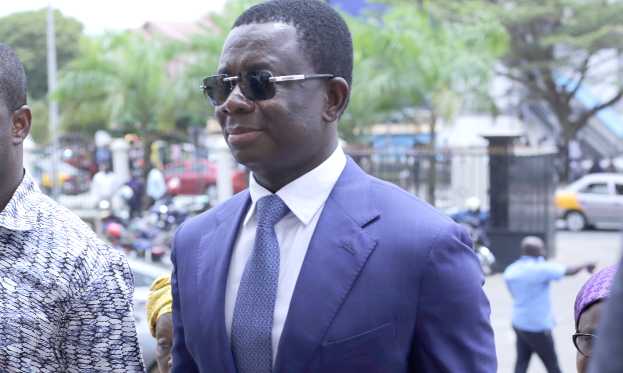Published
4 months agoon
By
Diella Teku
In a landmark decision, the Supreme Court of Ghana, led by Justice Lovelace Avril Johnson, unanimously dismissed petitions challenging the legislative process of the Human Sexual Rights and Family Values Bill. The ruling reinforces the court’s stance on the separation of powers and affirms the autonomy of Parliament in law-making until a bill becomes law.
The petitions, filed by broadcast journalist and lawyer Richard Dela Sky and equality advocate Amanda Odoi, sought to invalidate the contentious bill, which has sparked nationwide debate over its implications for LGBTQI rights. Sky and Odoi argued that the legislative process violated constitutional quorum requirements as specified in Articles 102 and 104. They contended that these procedural lapses rendered the bill unconstitutional.
In rejecting the petitions, the Supreme Court clarified that legislative processes cannot be subjected to judicial review until they culminate in enforceable law. Justice Johnson emphasized that since the bill had not yet received presidential assent, it did not constitute a legal enactment and, therefore, could not be challenged on constitutional grounds.
This interpretation underscores the judiciary’s respect for legislative independence, reaffirming that the courts cannot intervene prematurely in the law-making process.
The Human Sexual Rights and Family Values Bill seeks to criminalize activities associated with lesbian, gay, bisexual, transgender, queer, and intersex (LGBTQI) advocacy in Ghana. If enacted, it would impose severe penalties on individuals promoting, funding, or providing indirect support for LGBTQI-related activities.
Proponents of the bill argue that it is necessary to preserve Ghana’s cultural and family values, which they claim are under threat from foreign ideologies. Critics, including human rights organizations, counter that the bill violates fundamental freedoms, including those of expression, association, and equality.
The court’s ruling marks a significant juncture in Ghana’s legal and political discourse, emphasizing the constitutional boundaries of judicial intervention in legislative matters. It also sets a precedent for future challenges to parliamentary processes, indicating that such disputes must await the formalization of legislation before they can be adjudicated.
For now, the focus shifts back to Parliament and the intense public debate over the bill, which continues to polarize opinions across the nation. Whether the Human Sexual Rights and Family Values Bill becomes law will depend on its passage through the remaining legislative stages and subsequent presidential assent.


Supreme Court Quashes Re-Collation Orders in Four Constituencies: A Boost for NDC’s Legal Strategy


Supreme Court to Hear NDC Challenge on High Court’s Re-collation Directive


Supreme Court to Rule on Anti-LGBTQI+ Bill Challenge, Case Delays Attributed to Parties’ Inaction


Supreme Court Curbs Speaker Bagbin’s Power, Protecting Constituents’ Right to Representation


Supreme Court to Deliver Judgment on Speaker’s Controversial Declaration of Vacant Parliamentary Seats on Tuesday


Supreme Court Set to Rule on Speaker’s Authority Over Parliamentary Vacancies in High-Stakes Case


Supreme Court Resumes Hearing on Anti – LGBTQ+ Bill


E-Levy will go even if we don’t get justice from Supreme Court – Ablakwa hails Mahama.

SC ruling on Opuni’s case a travesty of justice”- NDC

























